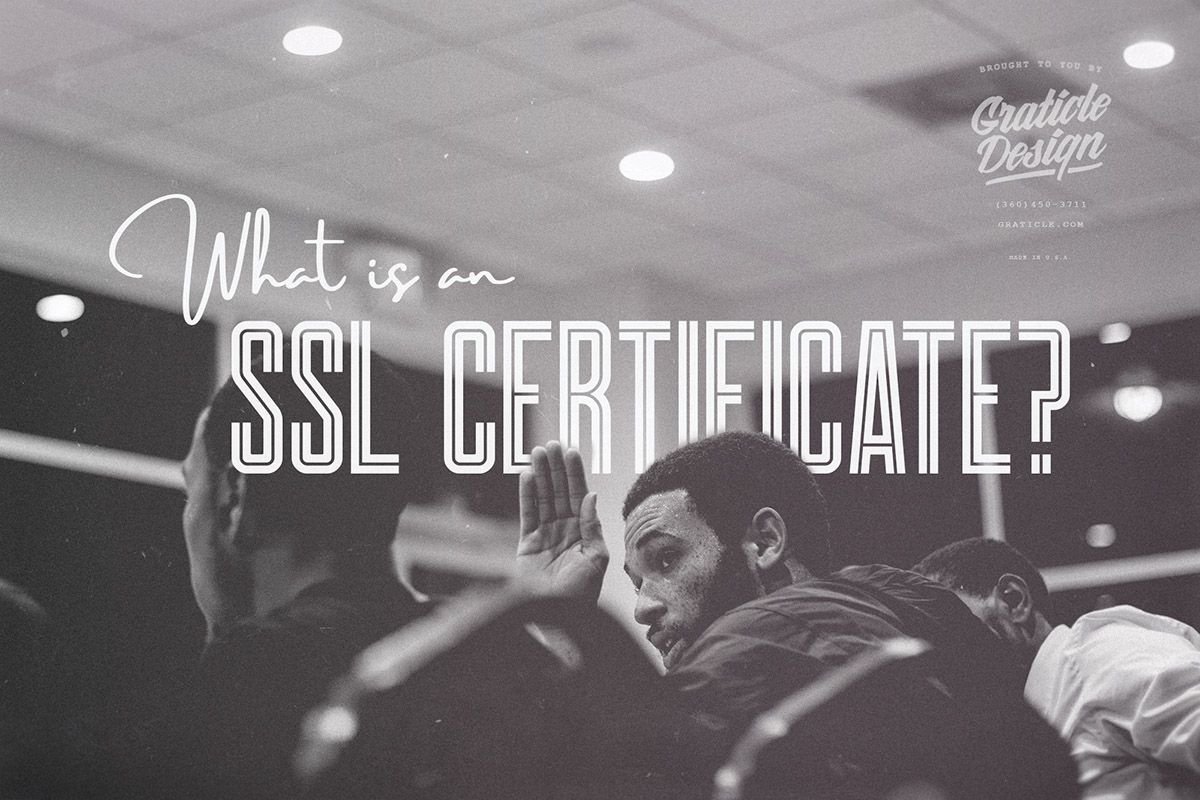
SSL Certificates have become a very popular topic since Google decided in 2014 to use them as a ranking signal in search results.
In plain English: Google will list your website higher in search engine results if you have an SSL Certificate installed (and configured correctly) than if you don’t have one.
Now, typically, SSL Certificates were only used on websites where financial transactions took place. They work to protect a customer’s credit card information and are required if you do collect credit card information on your website.
How Does an SSL Certificate Work?
An SSL certificate is a Secure Sockets Layer (SSL) Certificate. It encrypts your website visitors activity on your website. When they send you a message through your contact form or login to your website, that private information is protected. If a purchase is made on your website and the user enters a credit card number, that is also protected.
Historically, this is where many would make their decision. “I don’t sell anything on my website, so I don’t need one.” But, as you can see, SSL certificates provide more than just protecting credit card information on your website (plus more benefits below).
An SSL basically takes the information, puts it into a locked package and sends a key to the person who’s receiving it, and only they can open the package. No one else.
SSL Certificate Website Benefits
Security for Your Visitors
An SSL Certificate protects your visitor’s privacy by encrypting what they do on your website and any communications made on your website (think contact forms, logins, chatting, payments, etc.)
![]()
Look Professional
We’re all starting to become accustomed to the green lock icon in the address bar. It lets us know that the website we’re browsing is legitimate and takes their website and company seriously.
Secure Payments
If you collect payments through your website, this protects your customer’s credit card numbers and private information.
Boost Search Engine Rankings
As previously mentioned, Google will bump your website up in search rankings when you have an SSL Certificate installed.
Avoid Browser Alerts
Yes, avoid browser alerts in Google Chrome. As of January 2017, in current versions of Chrome, an alert is shown on websites that don’t have an SSL certificate but has any forms (contact forms, payments forms, etc.) on the website.
Now that we have that out of the way, you may ask…
How Do I Install an SSL Certificate?
I’ll spare you the boring details, and make this simple.
You can call, text or email us and we’ll handle every single detail for you.
The best part? We can have it installed within one business day and you can get back to the other items on your plate.
Let’s Install Your SSL Certificate Today
We’re ready when you are. Call or text us at (360) 450-3711.
You can also fill out our Quote Request form online





